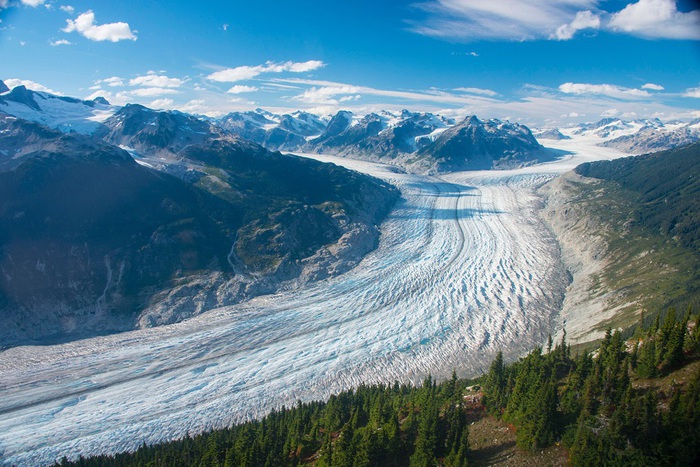The dawn of the twenty-first century is 'hot' for glaciers around the world: their melting has accelerated on a global scale over the past 20 years, and has contributed to nearly a fifth of sea level rise. On average, 267 gigatonnes (billions of tons) of ice were lost annually, with a surge of 130% between 2000 and 2019. Describing the phenomenon with unprecedented accuracy are the new ultra-high-precision measurements of over 217,000 glaciers in the world, virtually all existing except the Greenland and Antarctic ice sheets. Their HD mapping, published in Nature by an international team led by the University of Toulouse,it will make it possible to improve models on climate change with which to predict future scenarios and develop new strategies for the exploitation of water resources and the mitigation of rising seas.
"This study has significantly reduced the margins of uncertainty present in previous studies as well as in the latest report of the Intergovernmental Panel on Climate Change (IPCC) of 2019", comments Massimo Frezzotti, glaciologist at the University of Roma Tre and president of the Italian Glaciological Committee . “Thanks to aerial and satellite images, it has been possible to measure the thickness variations of almost all the world's glaciers, and not just the few hundreds that are usually monitored because they are more easily accessible”. The results obtained are in line with those of previous studies, but much more precise: “for this reason they allow us to better understand the correlations with climatic and environmental conditions”, underlines the glaciologist. And a little'like rubbing your eyes and finally being able to focus on details never captured before.
"The data indicate that glaciers are currently yielding more water than the great polar ice caps, although the latter (which contain more water) are accelerating much faster: Greenland has increased ice loss since 2000 to date. 162%, while Antarctica 436% ”, recalls the expert.
The glaciers present in Alaska and the Andes are those that have recorded the greatest losses in the last twenty years, while the Alpine glaciers hold the world record for the reduction of the average thickness, equal to about one meter per year.
“This is not surprising - says Frezzotti - considering that since the beginning of the twentieth century the Alpine glaciers have shrunk by over 60%”.
It is clear that “we are losing a great environmental and economic heritage, with serious implications for many peoples of the world. The melting of glaciers - explains the expert - involves the loss of important water reservoirs capable of helping agriculture and industry by buffering the scarcity of rainfall in dry periods. Furthermore, the melt water ends up in the seas, which are rising by 3.5 millimeters per year: a problem not only for cities like Venice, but also for the 11% of the world population who live in coastal areas that risk be submerged ".











